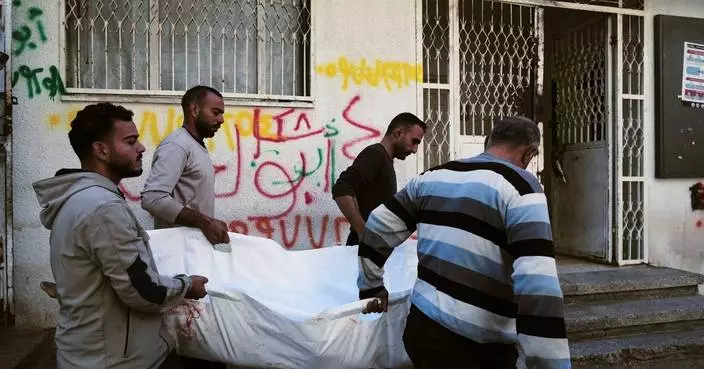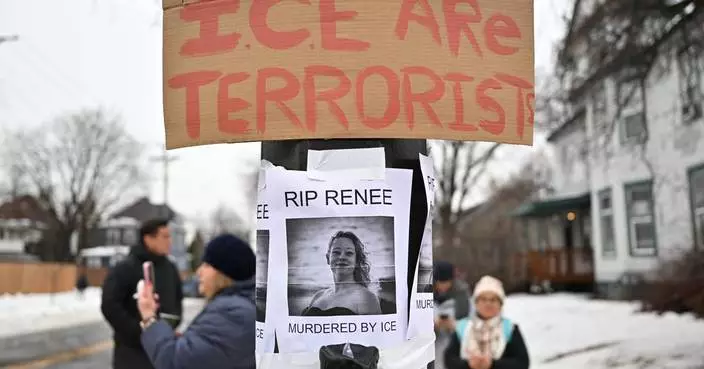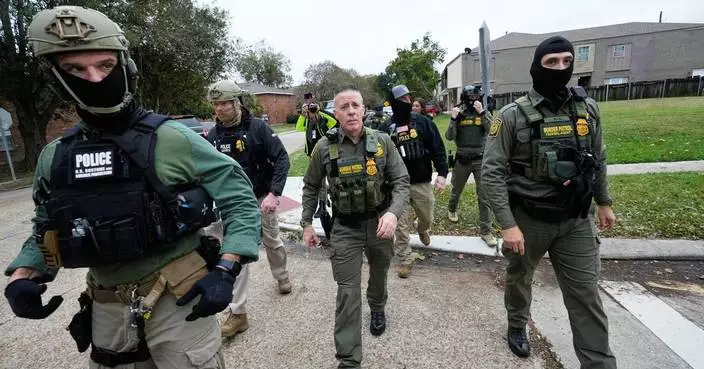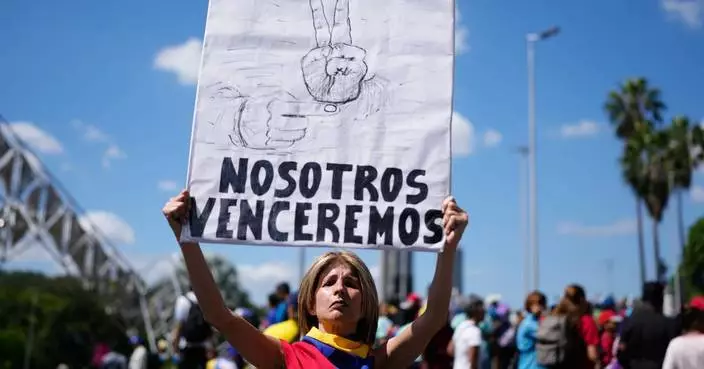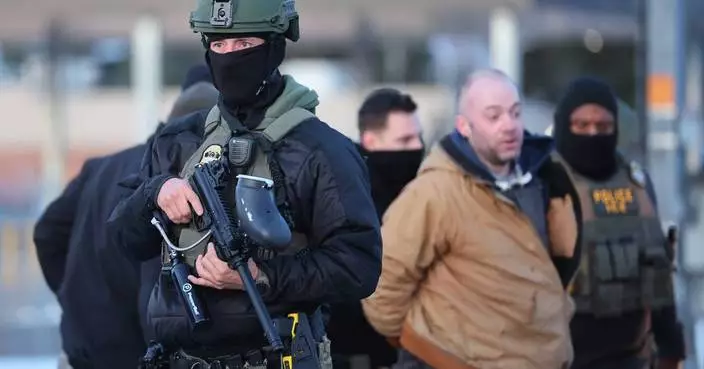The United Nations says shortages have become “very critical” in Ethiopia’s embattled Tigray region as its population of 6 million remains sealed off and its capital is under threat of attack by Ethiopian forces seeking to arrest the regional leaders.
Fuel and cash are running out, more than 1 million people are now displaced and food for nearly 100,000 refugees from Eritrea will be gone in a week, according to a new report released overnight. And more than 600,000 people who rely on monthly food rations haven’t received them this month.
Click to Gallery
A Tigray woman who fled the conflict in Ethiopia's Tigray region, holds her chest as she suffers from chest pains and coughs, at the Medecins Sans Frontieres (MSF) makeshift clinic, in Umm Rakouba refugee camp in Qadarif, eastern Sudan, Tuesday, Nov. 24, 2020. Misery continues for the refugees in Sudan, with little food, little medicine, little shelter, little funding and little or no contact with loved ones left behind in Tigray. (AP PhotoNariman El-Mofty)
Tigray people who fled the conflict in Ethiopia's Tigray region, walk at Umm Rakouba refugee camp in Qadarif, eastern Sudan, Wednesday, Nov. 25, 2020. Misery continues for the refugees in Sudan, with little food, little medicine, little shelter, little funding and little or no contact with loved ones left behind in Tigray. (AP PhotoNariman El-Mofty)
Tigray people who fled the conflict in Ethiopia's Tigray region, walk at Umm Rakouba refugee camp in Qadarif, eastern Sudan, Wednesday, Nov. 25, 2020. Misery continues for the refugees in Sudan, with little food, little medicine, little shelter, little funding and little or no contact with loved ones left behind in Tigray. (AP PhotoNariman El-Mofty)
A Tigray girl who fled the conflict in Ethiopia's Tigray region, walks near her shelter in Umm Rakouba refugee camp in Qadarif, eastern Sudan, Wednesday, Nov. 25, 2020. Misery continues for the refugees in Sudan, with little food, little medicine, little shelter, little funding and little or no contact with loved ones left behind in Tigray. (AP PhotoNariman El-Mofty)
A Tigray woman who fled the conflict in Ethiopia's Tigray region, holds her chest as she suffers from chest pains and coughs, at the Medecins Sans Frontieres (MSF) makeshift clinic, in Umm Rakouba refugee camp in Qadarif, eastern Sudan, Tuesday, Nov. 24, 2020. Misery continues for the refugees in Sudan, with little food, little medicine, little shelter, little funding and little or no contact with loved ones left behind in Tigray. (AP PhotoNariman El-Mofty)
Travel blockages are so dire that even within the Tigray capital, Mekele, the U.N. World Food Program cannot obtain access to transport food from its warehouses there.
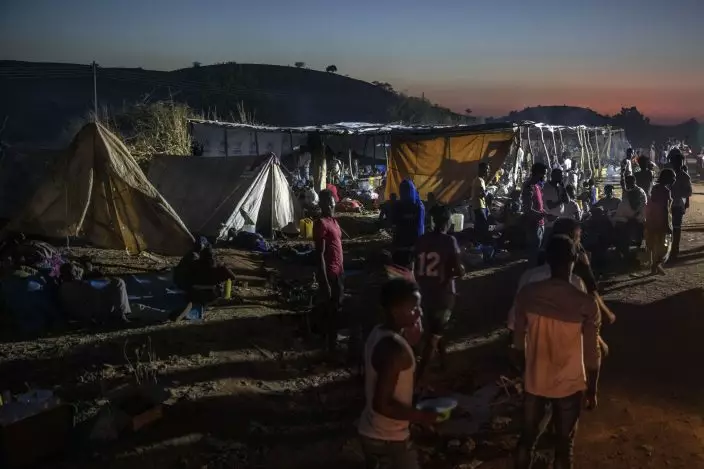
Tigray people who fled the conflict in Ethiopia's Tigray region, walk at Umm Rakouba refugee camp in Qadarif, eastern Sudan, Wednesday, Nov. 25, 2020. Misery continues for the refugees in Sudan, with little food, little medicine, little shelter, little funding and little or no contact with loved ones left behind in Tigray. (AP PhotoNariman El-Mofty)
Communications and travel links remain severed with the Tigray region since the deadly conflict broke out on Nov. 4, and now Human Rights Watch is warning that “actions that deliberately impede relief supplies” violate international humanitarian law.
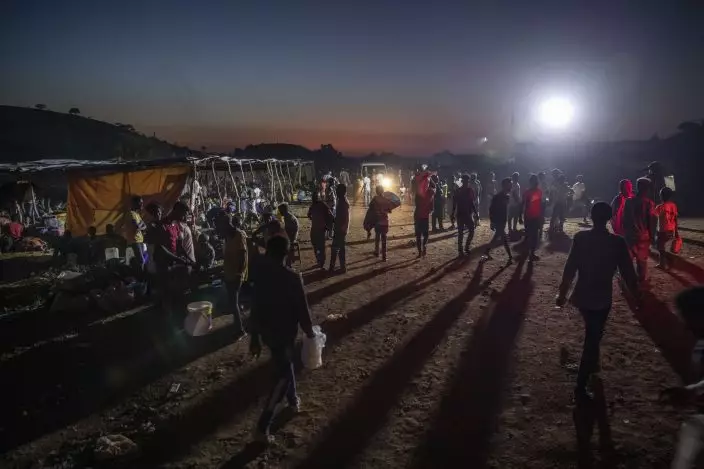
Tigray people who fled the conflict in Ethiopia's Tigray region, walk at Umm Rakouba refugee camp in Qadarif, eastern Sudan, Wednesday, Nov. 25, 2020. Misery continues for the refugees in Sudan, with little food, little medicine, little shelter, little funding and little or no contact with loved ones left behind in Tigray. (AP PhotoNariman El-Mofty)
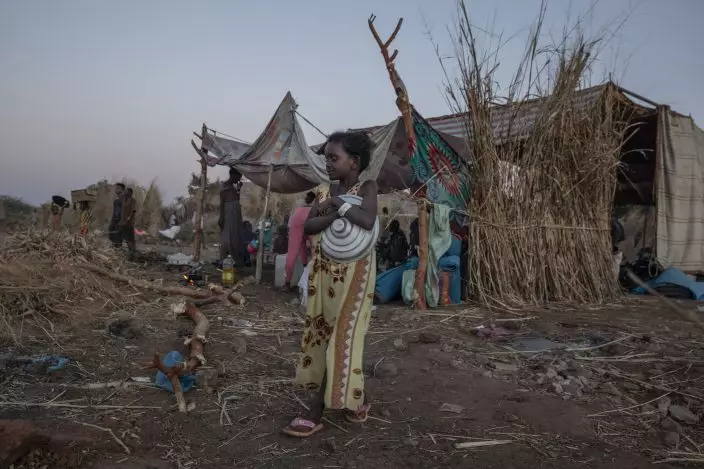
A Tigray girl who fled the conflict in Ethiopia's Tigray region, walks near her shelter in Umm Rakouba refugee camp in Qadarif, eastern Sudan, Wednesday, Nov. 25, 2020. Misery continues for the refugees in Sudan, with little food, little medicine, little shelter, little funding and little or no contact with loved ones left behind in Tigray. (AP PhotoNariman El-Mofty)
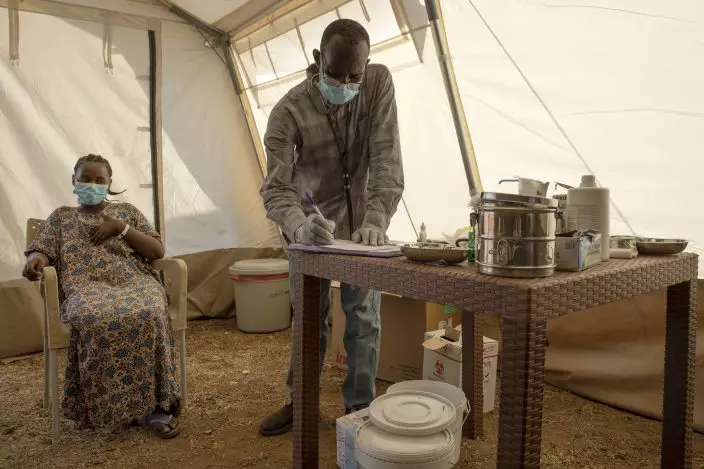
A Tigray woman who fled the conflict in Ethiopia's Tigray region, holds her chest as she suffers from chest pains and coughs, at the Medecins Sans Frontieres (MSF) makeshift clinic, in Umm Rakouba refugee camp in Qadarif, eastern Sudan, Tuesday, Nov. 24, 2020. Misery continues for the refugees in Sudan, with little food, little medicine, little shelter, little funding and little or no contact with loved ones left behind in Tigray. (AP PhotoNariman El-Mofty)
MINNEAPOLIS (AP) — The Minneapolis school system will offer families the option of remote learning for a month amid federal immigration enforcement in the city, the district said.
Under the temporary plan, teachers will simultaneously deliver lessons from their classrooms to students in the classroom and at home. The district provided the update late Thursday in an email to teachers that was obtained by The Associated Press.
The move comes as the Trump administration sends 2,000 immigration agents to the area and the community responds to the fatal shooting of a local woman earlier this week by a federal agent.
Immigration enforcement in cities across the U.S. has led to dips in school attendance, according to parents and educators. Advocates in other cities facing federal interventions have sought remote learning options, particularly for immigrant families that might feel vulnerable, but Minneapolis appears to be one of the few districts to reintroduce the option of pandemic-style virtual learning.
“This meets a really important need for our students who are not able to come to school right now,” a Minneapolis school administrator wrote in the email to staff.
The virtual learning option will be available through Feb. 12.
Minneapolis public schools were closed Thursday and Friday because of the tumult, but the district directed teachers to report to their school building to receive more details from administrators about the online instruction option. The district has not publicly provided details of the remote option.
In a statement Thursday, the Minnesota Department of Education said districts and charter schools can provide remote options for enrolled students.
“Plans for online instruction need to consider how the needs of all students can be met, including students with disabilities and students learning English,” Commissioner Willie Jett said.
The president of the Minnesota Federal of Teachers said on social media late Thursday that the union asked the district to consider offering remote learning.
“This is an OPTION and exactly what so many families need right now. MFE members brought this to MPS and MPS listened,” Marcia Howard wrote.
The union has been hearing worries from members and families who are concerned about sending children to school at time of heightened tensions over the immigration enforcement, said Natasha Dockter, first vice president of the union's teacher chapter.
Dockter said remote learning can be a challenge but educators will rise to the occasion to make it work.
“We’re in an emergency and our educators are going to do whatever they can to meet this moment in this emergency,” Dockter said.
Vázquez Toness reported from Boston.
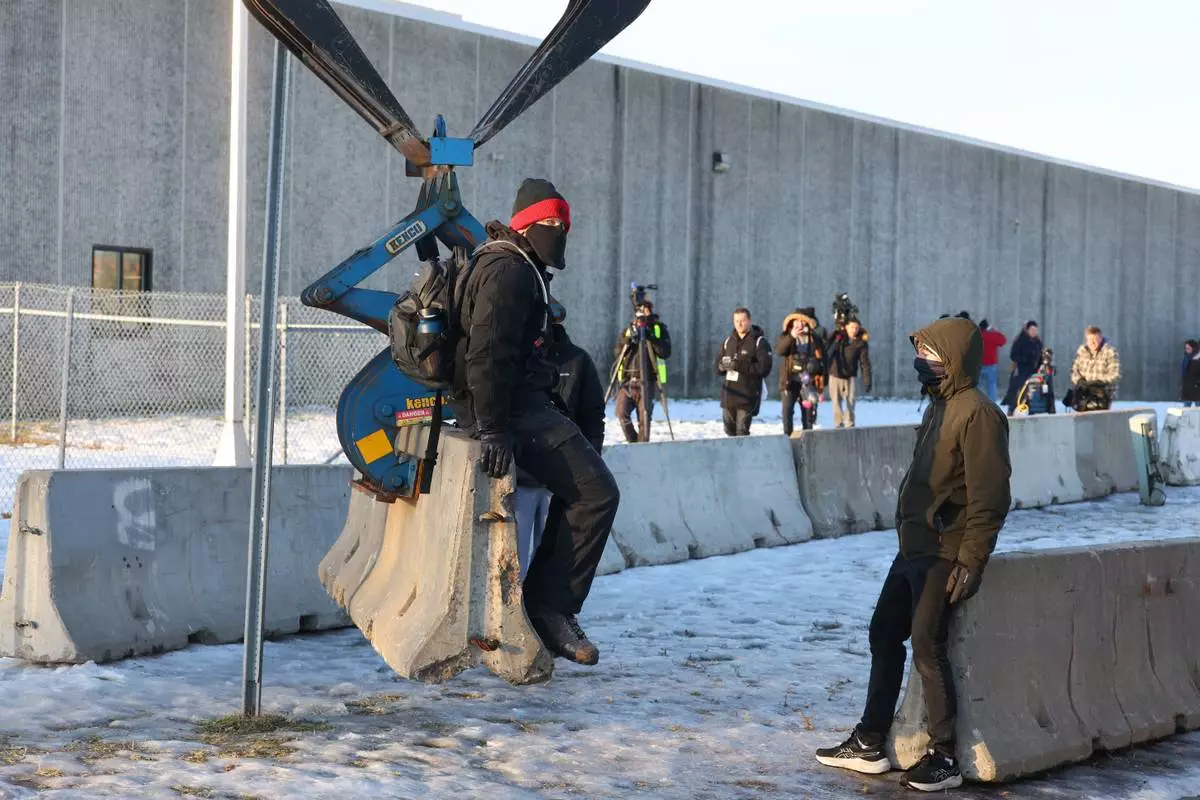
Protesters sit on a barrier that is being assembled outside the Bishop Henry Whipple Federal Building as demonstrators gather in Minneapolis, Friday, Jan. 9, 2026. (AP Photo/Adam Bettcher)
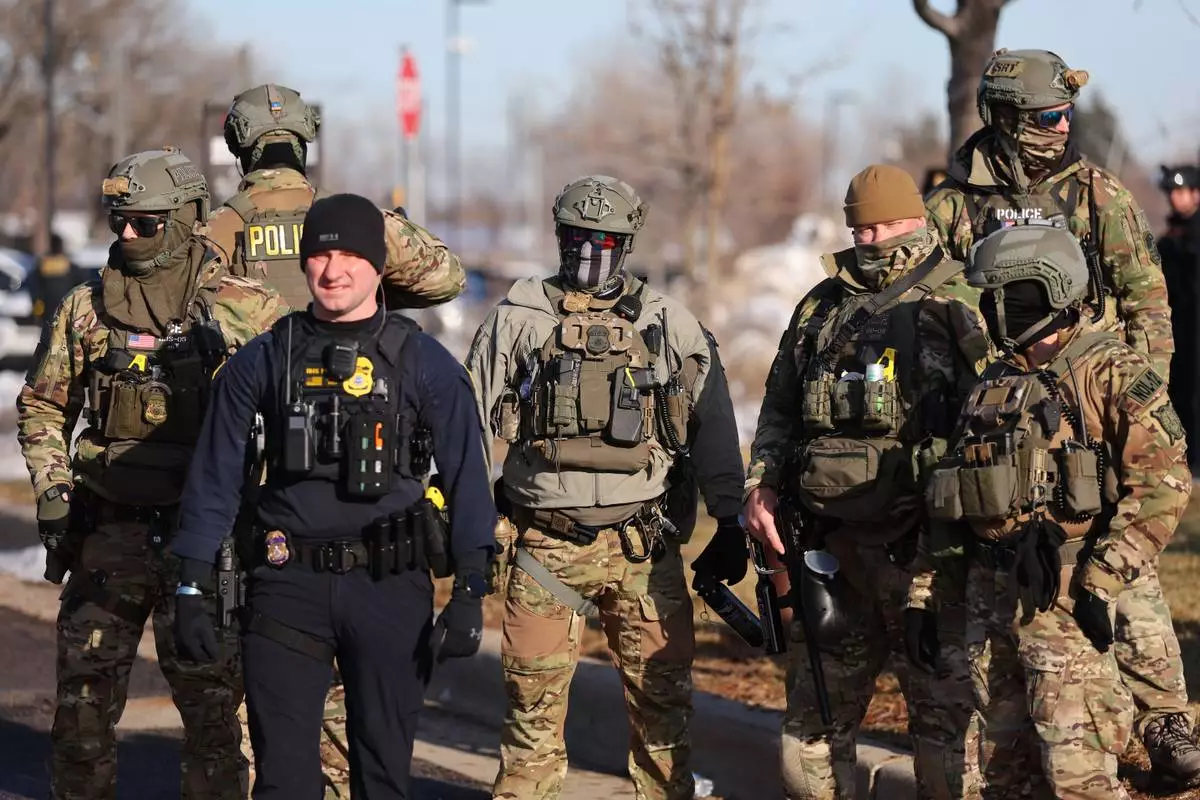
Federal agents stand outside the Bishop Henry Whipple Federal Building as protesters gather in Minneapolis, Friday, Jan. 9, 2026.(AP Photo/Adam Bettcher)
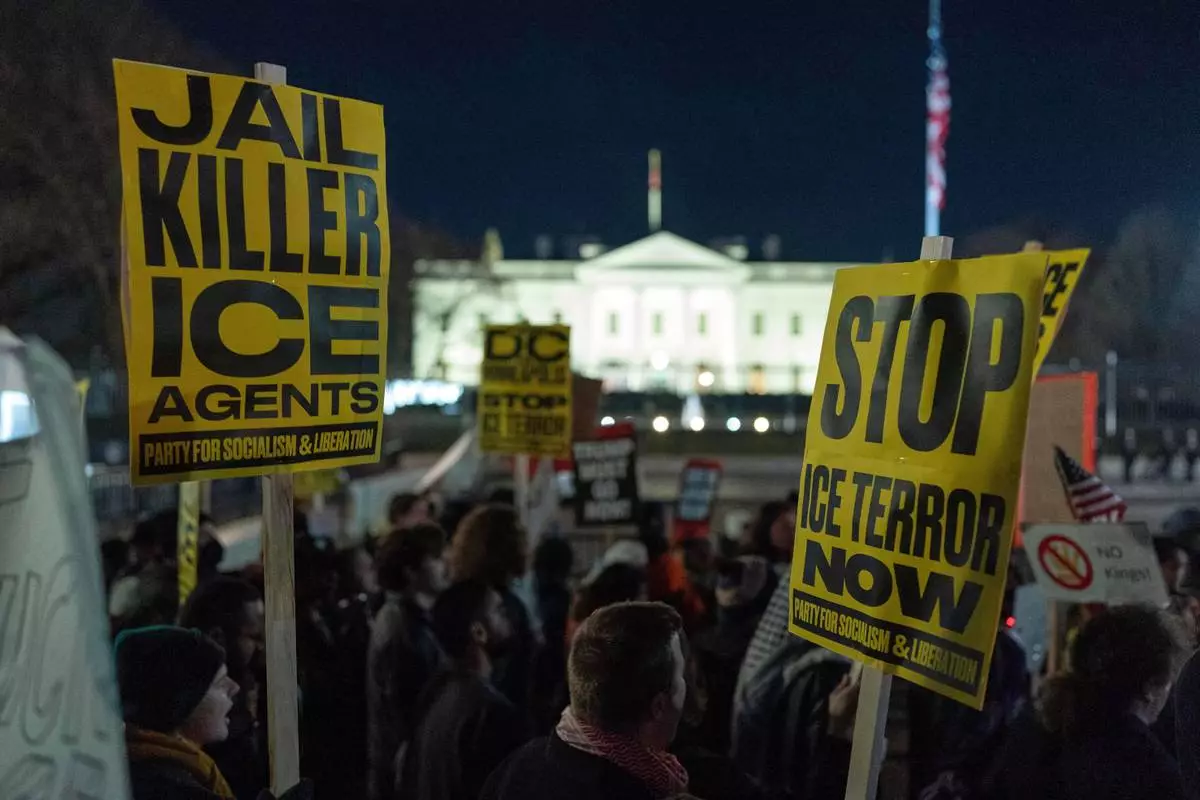
Demonstrators protest outside the White House in Washington, Thursday, Jan. 8, 2026, against the Immigration and Customs Enforcement (ICE) agent who fatally shot Renee Nicole Good in Minneapolis. (AP Photo/Jose Luis Magana)











